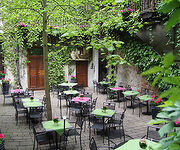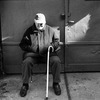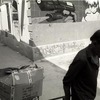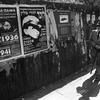Pope to Publish Cracow Memoir
Historians often cite the Pope as the crucial figure in dislodging communism in Eastern Europe, yet from afar, this may sound a little improbable. After all: 'How many divisions has the Pope?' as Stalin himself quipped.
But on closer inspection, the assertion seems less outlandish. The waves of euphoria that this Polish archbishop caused in his native land on his election to the Papacy in 1978, were of a power that is hard to comprehend in a West that was already resoundingly secularized thirty years ago.
The Pope's subsequent visits to Poland over the next decade were no less inspiring, events that rallied a populace that was deeply embittered by totalitarian rule:
'We saw we were united' remembers one Professor, who, like all Poles, had not witnessed mass public gatherings (by and large they were illegal) until the Pope's visit. 'There were millions like us. We discovered community, solidarity, and power.'
The Solidarity protest movement itself, which the Pope supported both publicly and behind the scenes, was formed in the wake of his first return visit to Poland in June 1979. That same movement, led by the redoubtable Lech Walesa, eventually brought about the decisive Round Table Talks with the Communists in 1989, the upshot of which was a democratic Poland.
However, whilst these big events have since passed into legend, equally as important was the groundwork that the Pope put in during his days as an Archbishop in Cracow. Over a twenty year period, he was an energetic supporter of freedom of expression; fostering intellectual debate and weathering clashes with the Communist regime that were almost daily in number.
In this light, the announcement last week that the eighty-four year old Pope has completed a book about the era is highly intriguing news.
According to the Vatican spokesman Joaquin Navarro-Vals, the work is a collection of 'memories and reflections', beginning with the moment when the future Pope heard of his selection for an archbishopric in 1958 - he was on a canoe trip in the Polish mountains at the time.
On one level one might wonder how on earth the Pope managed to knock out a two hundred page memoir, whilst simultaneously fulfilling a schedule that would be taxing for somebody half his age.
However, as a Vatican spokesman remarked on Thursday: 'The Pope likes to write - he's probably working on something right now.'
Whilst historians will be thrilled at the notion of first hand recollections of this crucial period in the history of the Eastern bloc, Mondadori, the Pope's publishing house, will also be buoyant about the prospect of new material from His Holiness.
Indeed, as sales of his last book 'Crossing the Threshold of Hope' reveal (50 million copies sold worldwide), His Holiness can certainly hold his own with the J.K Rowlings of this world when it comes to shifting copies.
Provisionally titled 'Get up and Let us Go', alluding to one of Jesus's final remarks to his apostles, the book is purportedly written in a personal and often humorous style that should be accessible to a wide audience.
An original date of May 18th has been ear-marked for the Italian edition, whilst English, French, German and Spanish editions are also in preparation. The work was originally dictated in Polish during the Spring and Summer of 2003, and it is likely to be a huge success back in his native land, where the author is regarded as a living saint.
Whether or not His Holiness has any more literary numbers up his sleeve remains to be seen. However, one can be sure that he will soldier on for as long as the Almighty ordains. And of course, whilst the ground of his priesthood and that of his time as a bishop have now been covered in two separate volumes, there still remains the pontificate itself. So perhaps this won't quite be the last word after all.

 Kawaleria Szarza Smaku
Kawaleria Szarza Smaku
 Europejska
Europejska
 Krakow Pinball Museum
Krakow Pinball Museum






